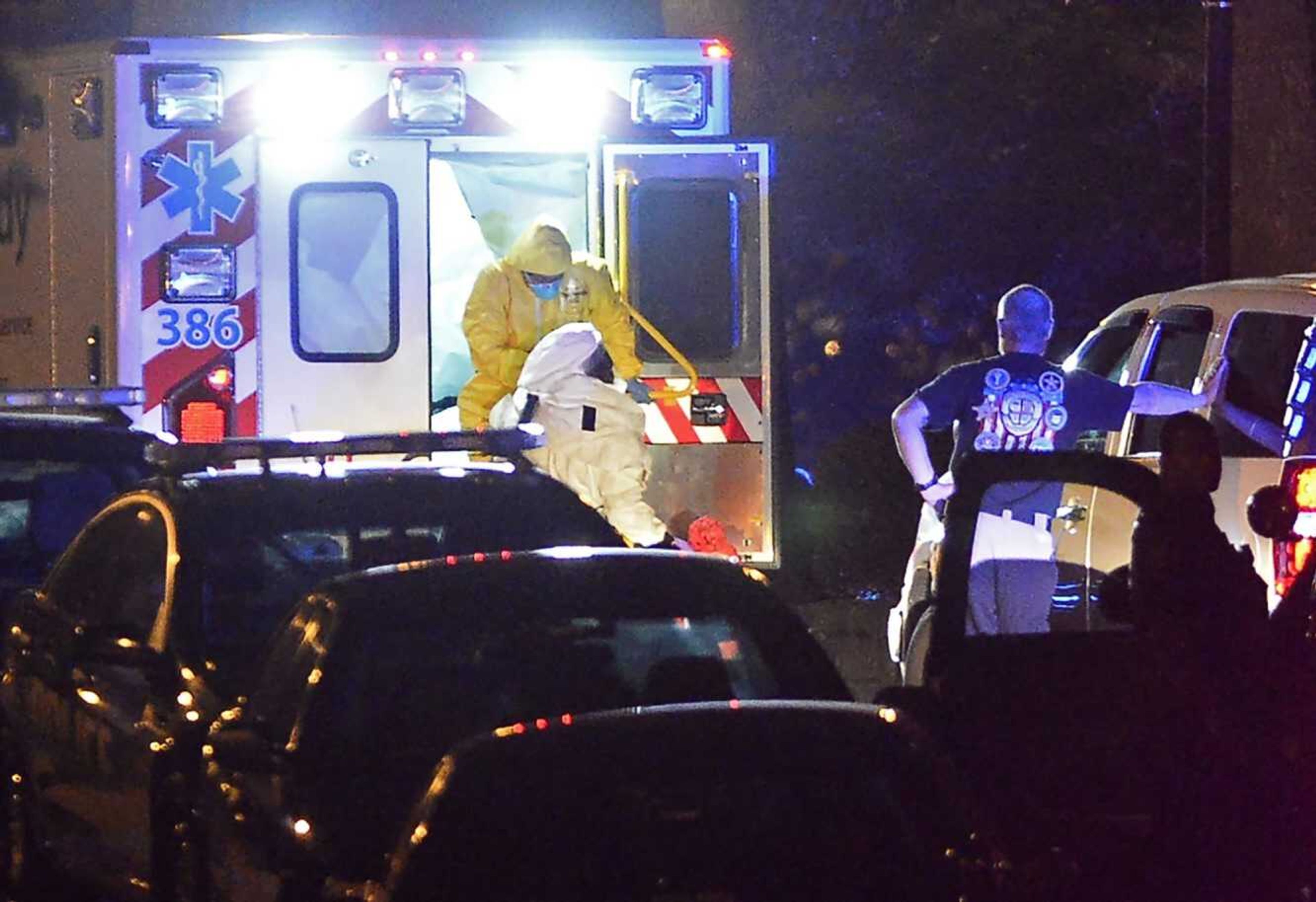Former Ebola patients mark 5 years since treatment in U.S.
ATLANTA -- As the second-deadliest Ebola outbreak in history rages in Congo, a doctor who survived the deadly disease five years ago worries people aren't paying enough attention. "It's happening in Democratic Republic of Congo, and most of the Western World is not paying much attention to it," Dr. Kent Brantly told The Associated Press in a recent interview...
ATLANTA -- As the second-deadliest Ebola outbreak in history rages in Congo, a doctor who survived the deadly disease five years ago worries people aren't paying enough attention.
"It's happening in Democratic Republic of Congo, and most of the Western World is not paying much attention to it," Dr. Kent Brantly told The Associated Press in a recent interview.
Brantly, a missionary and doctor who was infected with the virus in 2014 while caring for patients in Liberia, was the first Ebola patient brought to the United States for treatment at Emory University Hospital in Atlanta.
Brantly's arrival Aug. 2, 2014, received intense news coverage, with cameras capturing him walking from an ambulance into the hospital in a white protective suit. In a recent interview with The Associated Press, he recalled talking to his wife right after that.
"She said, 'Kent, we watched you walk into the hospital,"' he said. "I said, 'You were watching me?' And she said, 'Oh, Kent, the whole world was watching you.' I had no clue. No idea that people were paying attention."
Brantly, who worked for the North Carolina-based aid organization Samaritan's Purse, also remembered the moment in Africa when he received the bleak diagnosis.
"We had had around 20 patients with Ebola in our treatment unit, and we only had one survivor," he said. "So when my friend Nancy Writebol and I were both diagnosed with Ebola, I thought the chances of both of us surviving were nearly zero."
Writebol, a missionary who was the second Ebola patient brought to Emory, worked alongside Brantly at the Elwa Mission Hospital near the Liberian capital of Monrovia. She recalled a knot forming in her stomach when she and Brantly were diagnosed.
"By the time I was evacuated out, I was probably at my lowest," Writebol recently told the AP. "I think at times they wondered if I'd even survive the flight."
Emory entered uncharted territory when Brantly and Writebol arrived within days of each other, said Dr. Colleen Kraft, one of the lead doctors on the team treating them.
"It was like walking on the moon a little bit because no one had ever cared for Ebola, so we didn't know what to expect," she told the AP.
But the Emory team had been preparing their unit for controlling serious communicable diseases for 10 years and was ready for the challenge.
Dr. Ian Crozier arrived about a month later -- Sept. 9, 2014 -- after contracting the disease in Sierra Leone. The fourth, Amber Vinson, one of two nurses who became infected in Dallas while treating the first patient to be diagnosed with Ebola in the United States. She arrived at Emory on Oct. 15, 2014.
On Friday, the fifth anniversary of Brantly's arrival at Emory, he and Writebol planned to reunite in Atlanta with the medical team. Crozier had planned to join them as well but ended up having to remain in Congo, where Ebola is spreading.
The 2014-2016 outbreak, the deadliest on record, killed more than 11,300 people before West Africa was declared Ebola-free in 2016.
The current outbreak in Congo has killed more than 1,800 people, nearly a third of them children. It has already become the second-deadliest outbreak in history even though a highly effective experimental vaccine is now available.
Brantly and Writebol also both returned to Africa after their recovery, and Writebol continues to work with Ebola survivors. The two hope their stories can bring attention to the current crisis.
Writebol said "it was amazing to us, having experienced Ebola ourselves, how the walls came down between us and Liberians."
Connect with the Southeast Missourian Newsroom:
For corrections to this story or other insights for the editor, click here. To submit a letter to the editor, click here. To learn about the Southeast Missourian’s AI Policy, click here.










